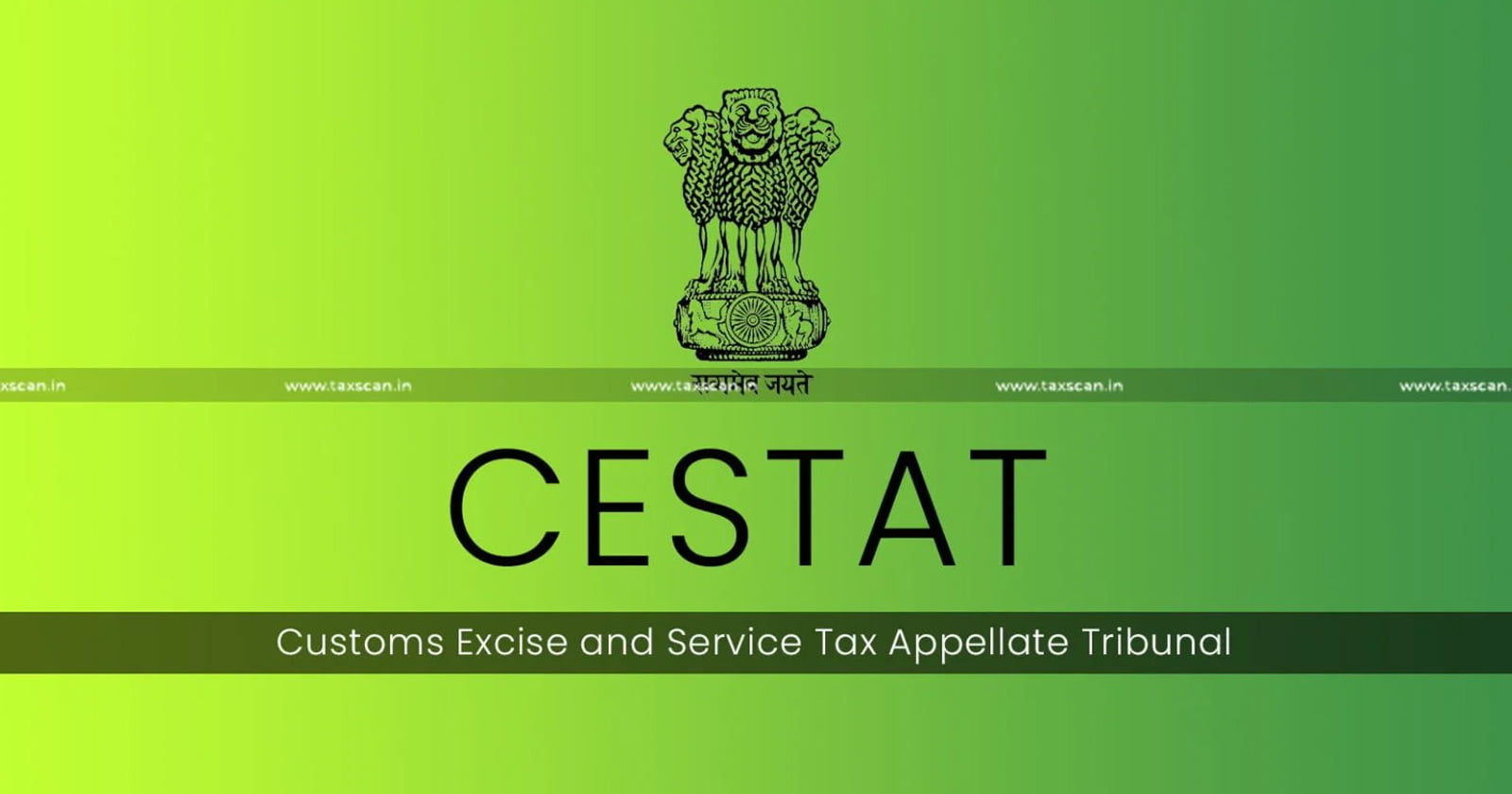CESTAT Allows Adjustment and Refund of ₹22.37 Lakh Excess Service Tax to Eastern India Enterprise and Sets Aside Penalties [Read Order]
CESTAT permits adjustment and refund of ₹22.37 lakh excess service tax paid by Eastern India Enterprise, setting aside all penalties citing overall excess payment, and remanded the matter to verify unjust enrichment and correctness of refund claim
![CESTAT Allows Adjustment and Refund of ₹22.37 Lakh Excess Service Tax to Eastern India Enterprise and Sets Aside Penalties [Read Order] CESTAT Allows Adjustment and Refund of ₹22.37 Lakh Excess Service Tax to Eastern India Enterprise and Sets Aside Penalties [Read Order]](https://images.taxscan.in/h-upload/2025/07/10/2062397-service-tax-refund-service-tax-service-tax-refund-cannot-be-denied-to-any-person-who-has-borne-the-incidence-of-tax-incidence-of-tax-cestat-customs-excise-taxscan.webp)
The Kolkata Bench of the Customs, Excise and Service Tax Appellate Tribunal (CESTAT) has allowed an appeal, permitting adjustment and refund of the excess service tax amounting to ₹22,37,334. The Tribunal also set aside all penalties imposed by the adjudicating authority.
The appellant, Eastern India Enterprise, is a registered service tax assessee involved
in providing "maintenance and repair service" under Section 65(105)(zzg) of the Finance Act, 1994.
 Also Read:CESTAT Allows Refund for Input Services Tax on Exported Goods Post-GST citing S.142(4) of CGST Act and Circular [Read Order]
Also Read:CESTAT Allows Refund for Input Services Tax on Exported Goods Post-GST citing S.142(4) of CGST Act and Circular [Read Order]
The appellant was examined for audit and scrutiny for the financial years 2009-10 to 2012-13, and based on the audit conducted, a show cause notice was issued proposing a demand of ₹1,34,36,058 (including cesses), along with interest and penalties.
Law Simplified with Tables, Charts & Illustrations – Easy to Understand - Click here
The adjudicating authority, Commissioner of Central Excise confirmed a service tax demand of ₹13,19,071 under Section 73(2) of the Finance Act, 1994. The Commissioner further ordered appropriation of the above amount against excess service tax payments of ₹35,56,405. However, the remaining excess amount was not refunded on the ground that no refund application had been filed by the assessee.
The assessee contended that there was no justification in withholding the balance amount of ₹22,37,334, especially when the Commissioner had already accepted the existence of excess payments.
 Also Read:CESTAT Allows Refund of Rs.1.67 Cr for Fit-Out Services Used in Office Renovation, Holds Them as Eligible Input Services
Also Read:CESTAT Allows Refund of Rs.1.67 Cr for Fit-Out Services Used in Office Renovation, Holds Them as Eligible Input Services
The assessee also challenged the imposition of penalties under Sections 77 and 78 of the Finance Act, 1994, and argued that Section 80, applicable at the relevant time, permitted waiver of penalties where reasonable cause was shown.
The Tribunal comprising Ashok Jindal (Judicial Member) and K. Anpazhakan (Technical Member held that the service tax liability of ₹13,19,071 which being the short payment for the years 2009–10 and 2012–13, is infact payable along with the applicable interest, but the liability amount should be adjusted from the excess amount which is already deposited by the appellant.
The Tribunal also observed that after such adjustment, an excess payment of ₹22,37,334 still remains and held that this excess should be refunded to the assessee, subject to verification of unjust enrichment and correctness of the claim.
The Tribunal noted that there were both short payments and excess payments but found that overall, there was an excess payment by the assessee and therefore concluded that no penalty is imposable.Hence, the Tribunal set aside all the penalties imposed under the impugned order.
Accordingly, the Tribunal remanded the matter to the adjudicating authority to verify the unjust enrichment angle as well as the correctness of the claim made by the assessee regarding the excess payment. Therefore, the appeal is allowed.
The appellant was represented by S.P. Siddhanta, while S. Dey represented the Revenue.
Support our journalism by subscribing to Taxscan premium. Follow us on Telegram for quick updates


